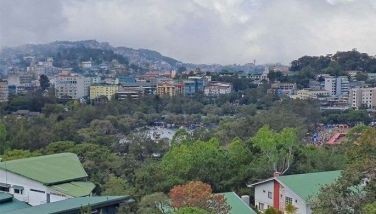Soft power drives brand reputation – study
MANILA, Philippines - Cities in Asia Pacific can leverage “soft power” to drive brand reputation and gain competitive edge. This was the result of the latest study conducted by Weber Shandwick, one of the world’s leading global public relations firms, entitled “Engaging Cities: the Growing Relevance of Soft Power to City Reputations in Asia Pacific”. Soft power refers to attributes of city brand reputation that enable Asian countries to be competitive, as opposed to hard power like politics, economics and military might.
The study examines eight cities – Bangkok, Hong Kong, Kuala Lumpur, Seoul, Shanghai, Singapore, Sydney and Tokyo – across 16 soft power attributes that, when combined, contribute to a differentiated positioning of a city’s brand reputation and perceived influence. They include social media and digital technology; tourism; food, culinary and dining experiences; architecture and design; sustainability and the environment; and standard of living. In partnership with KRC Research, Weber Shandwick interviewed 4,147 people online and spoke with 20 experts in sectors as diverse as media, design, architecture, retail, sports and trade. Manila, listed by Chicago-based consulting firm A.T. Kearney Inc. as one of the Likeliest Emerging City to Rise in the world, will be part of a follow-up study in 2015.
Weber Shandwick Philippines president Diana V. Lesaca believes that the Philippines already has enough soft power to compete in the world stage of city brand reputation. “Manila is a highly dynamic city that is brimming with creativity. The potential to become influential has always been there. It’s just a matter of being able to recognize which soft power we can maximize so we can effectively promote ourselves to the local market and to the rest of the world,” Lesaca said.
Among the soft power attributes studied, the Weber Shandwick report reveals Singapore’s top ranking for its innovative approach to sustainability and the environment and for offering a particularly high standard of living to residents. Hong Kong was rated first for being seen as the financial centre of the region, and Sydney was rated first across sports and leisure infrastructure, contemporary architecture and design, and gender tolerance, but was rated as the least influential city in terms of food, culinary and dining experiences.
“The dramatic urbanisation of Asian countries and the increasingly challenging environment in which civic leaders compete for creative talent, inward investment and tourism dollars has made brand reputation a priority for cities,” said Ian Rumsby, chief strategy officer, Asia Pacific, Weber Shandwick. “The ability to articulate, connect and promote unique, soft power attributes is now at the centre of success for governments and cities.”
- Latest
- Trending































